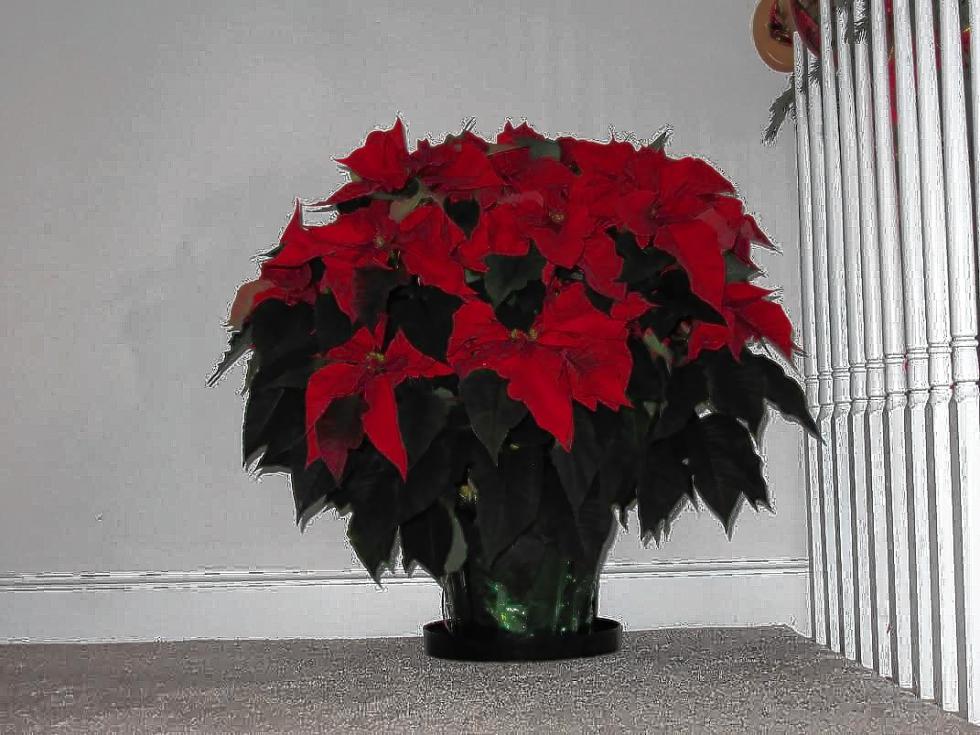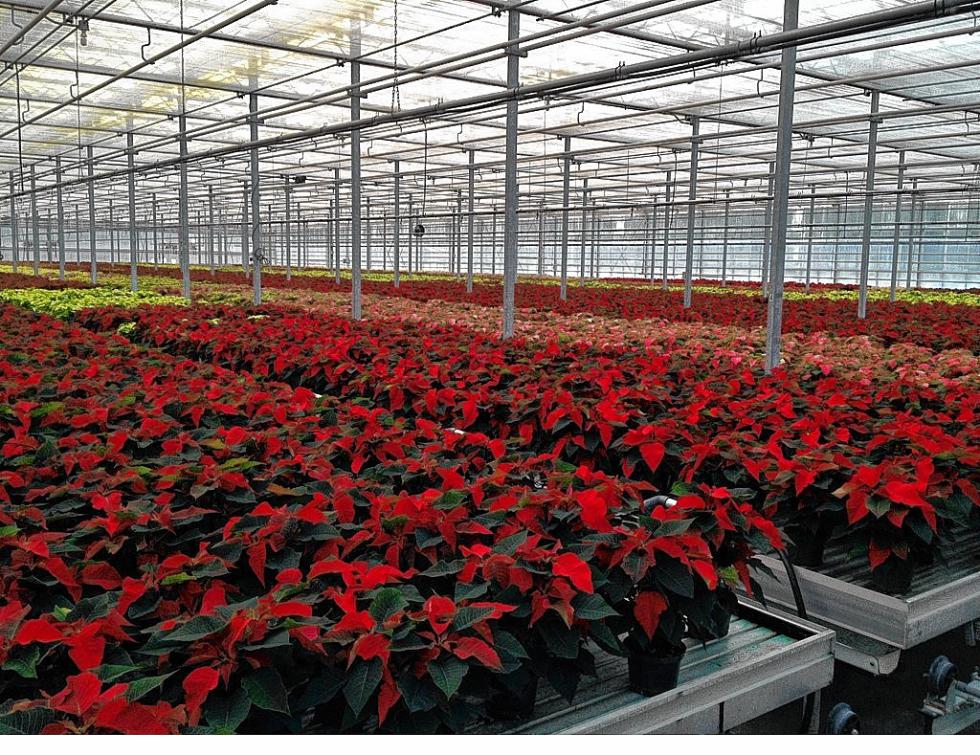First, a little history of the poinsettia: The poinsettia plant is part of the Euphorbiaceae or Spurge family, and is one of the most popular potted flowers in the United States, although native to southern Mexico.
The poinsettia is named after Joel Roberts Poinsett, a botanist, physician and the first U.S. Ambassador to Mexico. Poinsett introduced the poinsettia plant to the United States in 1825. Today, poinsettias decorate many American households and businesses during the winter holiday season.
Most people discard their poinsettias once the holiday has past, however, it is possible to keep the plant in good condition until March. (Some people have better luck and/or may be more skilled than others.)
And let’s dispel the unsubstantiated tale that has been told since 1919 claiming the poinsettia plant is poisonous. It is not. Years ago, the Society of American Florists and Ohio State University undertook a scientific investigation to determine the safety of the poinsettia plant. This research undeniably disproved the charge that the poinsettia plant is harmful to human and animal health. Of course, poinsettias are not intended for either human or animal consumption, but eating them will not kill you.
Poinsettias thrive on bright, sunny natural daylight – at least six hours is recommended and placement near a sunny window is ideal. To keep the bracts (the showy colored parts of poinsettias that most people think of as the flowers are actually colored bracts or modified leaves) of the plant bright in color, the room temperature should not exceed 70 degrees during the day or fall below 65 degrees at night.
The plants will be seriously injured if they are exposed to temperatures below 50 degrees, even briefly in transport, etc. Avoid placing the plants near drafts or excess heat and dry air that could emanate from appliances, fireplaces or ventilation ducts.
Poinsettias do best in moist soil – they do not like to be either too wet or too dry. Water poinsettias thoroughly when the soil’s surface feels dry to the touch by moistening the plant’s surface with water from a watering can, letting the water filter down through the plant until it just barely starts to drain out the bottom of the pot. Allow it to drain thoroughly and then place the plant back into its outer pot or onto a plant saucer. Do not let the pot sit in standing water. This could cause permanent root-rot damage.
As for fertilizing your poinsettias, it is not necessary during the holiday season, which usually runs six to eight weeks, however, if you would like to try saving the plant for a longer period of time, promoting new growth and maintaining its rich, green color, choose an all-purpose houseplant fertilizer and apply it at half strength. Repeat in another six to eight weeks. The regimen for preserving your holiday poinsettia and for it to hopefully re-flower takes more than a little vigilance, perseverance and patience to be successful. But it can be done.
Go to the University of New Hampshire Cooperative Extension website, (extension.unh.edu) and type “poinsettia care” in the search box for complete instructions on “Re-flowering Your Poinsettia.” Or just purchase a new poinsettia or two from the Bow Garden Club.
Since 2008, the Bow Garden Club has been pre-selling 8- and 10-inch pots of poinsettia plants to area residents as one of their fundraisers. D.S. Cole in Loudon is the club’s supplier of poinsettias and they provide beautiful and healthy plants every year in traditional red, pinks and white/ivory and even offer a combination planting of both red and white poinsettias.
The 8-inch pots actually hold three separate plants making for a gorgeous spread of blooms of 18 to 24 inches across and the 10-inch pots hold four individual poinsettia plants with a spread of 30 to 36 inches – coffee table size. Most people like the larger ones as floor plants because while they make quite the statement, they definitely do not fit on the average mantel or shelf.
Members of the garden club will be taking orders for these poinsettias beginning Oct. 15 and will continue pre-selling them until Nov. 15. They will be delivered to the Old Town Hall in Bow, 91 Bow Center Road, for pick up on Saturday, Dec. 5 or will be delivered to purchasers if prior arrangements were made with their seller.
The 8-inch pots of poinsettias are $22 each and are available in red, white/ivory and pink; the 10-inch pots are $32 and are also available in these colors as well as a combination of two red and two white poinsettias. An instruction sheet written by UNH Cooperative Extension on how to care for your poinsettia plants is included with purchase.
If you wish to pre-order a poinsettia or two for the holidays, please contact any Bow Garden Club member, go to their website, bowgardenclub.org, or contact Fundraising Chairwoman Joyce Kimball at joyceakimball@comcast.net. There will also be order forms posted on the Baker Free Library’s bulletin board for the duration of the sale.










